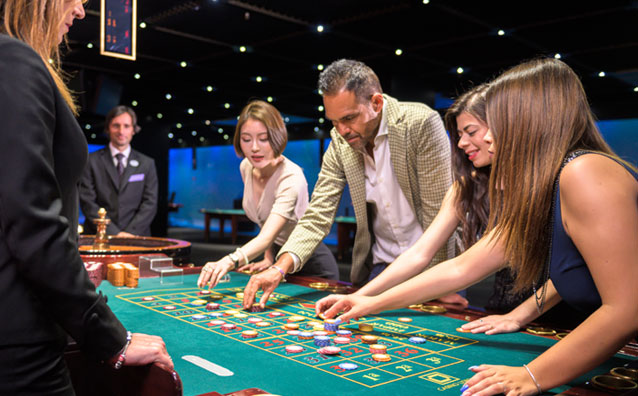Gambling as Defiance Against the Ordinary
Stability is usually celebrated. Society teaches us to save money, build careers, follow rules, and live within predictable structures. Yet many people turn to casinos not simply to win money, but to reject this very notion of stability. At 5Gringos καζίνο, every spin, card, or bet can be seen as a symbolic rebellion – a way of saying “no” to the repetitive patterns of daily life and embracing a world where risk defines meaning.
This article explores why gambling is not just entertainment or profit-seeking, but also a psychological and cultural statement: the deliberate choice of uncertainty over security.
The Psychology of Rejecting Stability
Why Stability Feels Suffocating
Stability promises safety, but for some, it creates monotony. A steady paycheck, routine schedules, and predictable outcomes can drain emotional energy. Gambling interrupts this by injecting unpredictability, where anything can happen in seconds.
Risk as Identity
Players often don’t gamble only to win – they gamble to feel like risk-takers. Each bet is a declaration: “I am not confined by ordinary rules.”
Casinos as Theaters of Uncertainty
The Stage of Chance
Casinos are designed to amplify the feeling of unpredictability. The lights, sounds, and mechanics of games make stability impossible. Each spin or deal is a reminder that outcomes are never guaranteed.
Online Adaptation
Platforms transfer this dynamic into digital form. Even in solitude, the player experiences the thrill of rejecting routine and surrendering to volatility.
Gambling as Symbolic Protest
Against Social Expectations
In cultures where success is measured by hard work and stability, gambling can serve as a quiet rebellion. It’s a way to reject the message that safety is the only respectable path.
Against Personal Limits
Some players use gambling to push against their own boundaries. Risk becomes an exercise in defying personal caution and stepping into chaos deliberately.
Emotional Rewards of Instability
The High of Uncertainty
Unpredictability triggers dopamine. The body and mind respond with heightened excitement, making each moment in the casino feel richer than routine life.
The Illusion of Control
Ironically, even as players reject stability, they often find patterns or strategies that give them a sense of control – further enhancing the psychological satisfaction.
Why Losses Still Mean Something
Losing as Ritual
Unlike financial losses in daily life, losing in a casino often carries symbolic weight. It represents the cost of choosing chaos over safety, making it strangely meaningful rather than purely negative.
The “At Least I Chose” Mentality
For some, losing after a risky choice feels better than being trapped in stability. The act of choosing risk validates their autonomy.
Expert Perspectives on Risk and Rebellion
-
Psychologists note that many gamblers use risk to reaffirm their individuality in a world of conformity.
-
Sociologists view gambling as a ritual of controlled rebellion, a safe outlet for desires that can’t be expressed elsewhere.
-
Philosophers argue that gambling is an existential choice – a refusal of life’s predictability, an embrace of chaos as freedom.
Responsible Gambling: Saying “Yes” to Balance
Avoiding Excess
Rebelling against stability doesn’t have to mean self-destruction. Casinos encourage tools such as limit setting, reminders, and self-exclusion to keep the balance.
Making Instability Sustainable
By treating gambling as symbolic play rather than financial escape, players can enjoy the thrill of risk while protecting themselves from long-term harm.
Conclusion – The Freedom of Unpredictability
Gambling is more than the pursuit of money. It is a deeply symbolic act – a way to say “no” to stability, to routines, and to societal expectations. At casino, players find meaning not in guarantees but in the volatile rhythm of risk.
For those who feel suffocated by predictability, each spin or card isn’t just a game – it’s a declaration of freedom. Gambling, in this sense, becomes the art of choosing uncertainty over certainty, a ritual of living more vividly, even if only for a night.

